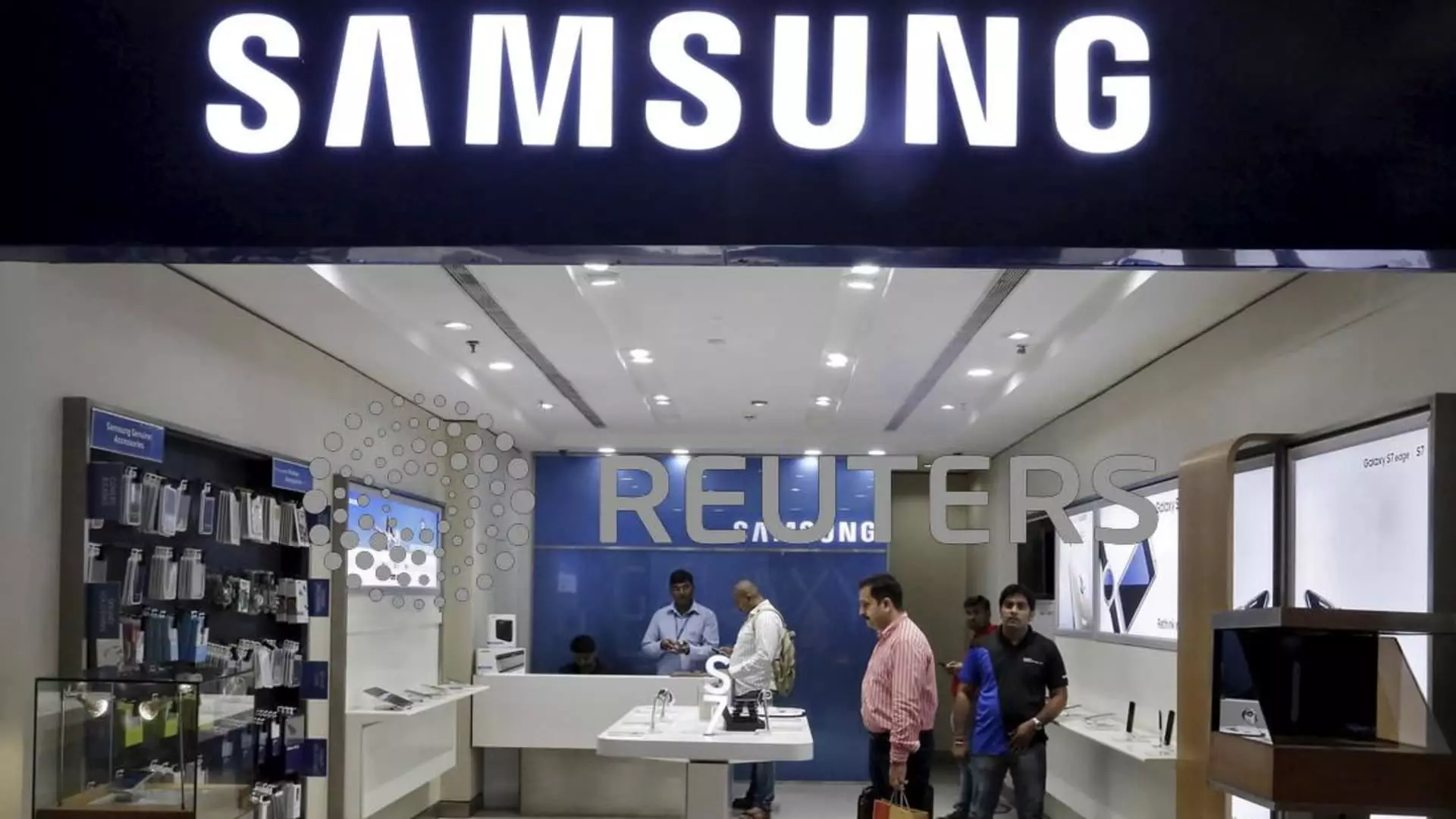Samsung Electronics, a dominant force in the tech industry, released its third-quarter financial report on Thursday, reflecting a mixed bag of results. Though the company surpassed its own expectations for sales and operating profit, the performance of its semiconductor division raised concerns. The semiconductor segment, a pillar of Samsung’s business, reported an operating profit of 3.86 trillion won (approximately $2.8 billion), marking a drastic decline of 40% compared to the previous quarter. This decline signals not just a temporary hiccup but perhaps a more significant, ongoing challenge for the company.
While Samsung’s memory chip unit experienced a minor uptick in demand due to the rise of artificial intelligence and conventional server products, the overall performance was shadowed by unfavorable inventory adjustments, particularly impacting mobile device sales. Additionally, the increasing influx of legacy products from China further complicated Samsung’s strategy in navigating the semiconductor landscape. Given that Samsung is the leading manufacturer of memory chips essential for devices such as laptops and servers, the notable drop in profits from this key sector raises red flags about the company’s future growth trajectory.
Samsung holds a significant position as the second-largest player in the global smartphone market. However, the company acknowledged that demand in the mobile and PC sectors has fallen short of expectations. This sentiment was echoed by the firm’s executives, who anticipated delays in the recovery of mobile and PC demand. Although there remains a strong interest in more advanced products, especially those linked to AI, the traditional mobile segment appears to be mired in sluggishness, reminding investors that the market is still volatile.
Looking toward the future, Samsung remains optimistic about the potential of advanced chipsets, particularly fueled by the growing enthusiasm for AI investments. The tech giant is banking on robust server demand as tech companies continue their aggressive pursuit of innovation. This forward-looking sentiment, however, is tempered by the realization that current market conditions require adaptability and resilience. As enterprises increasingly pivot to advanced technology, Samsung’s ability to respond to these shifts will be a crucial determinant of its success.
The recent financial report did not lift the clouds hovering over Samsung’s stock performance. Shares of Samsung Electronics on the South Korean stock exchange have plummeted by 24.71% this year, reflecting investors’ apprehensions about the company’s profitability and market position. Despite exceeding internal forecasts, the disparity between Samsung’s reported profits and analyst expectations underscores a disconnect that could impact investor confidence moving forward.
As Samsung Electronics grapples with challenges in its semiconductor division while facing uncertainty in the mobile market, its ability to innovate and adapt in an increasingly competitive landscape will be paramount for future success. The coming quarters will be critical as the company navigates these turbulent waters while holding onto its crown as a tech leader.

Leave a Reply